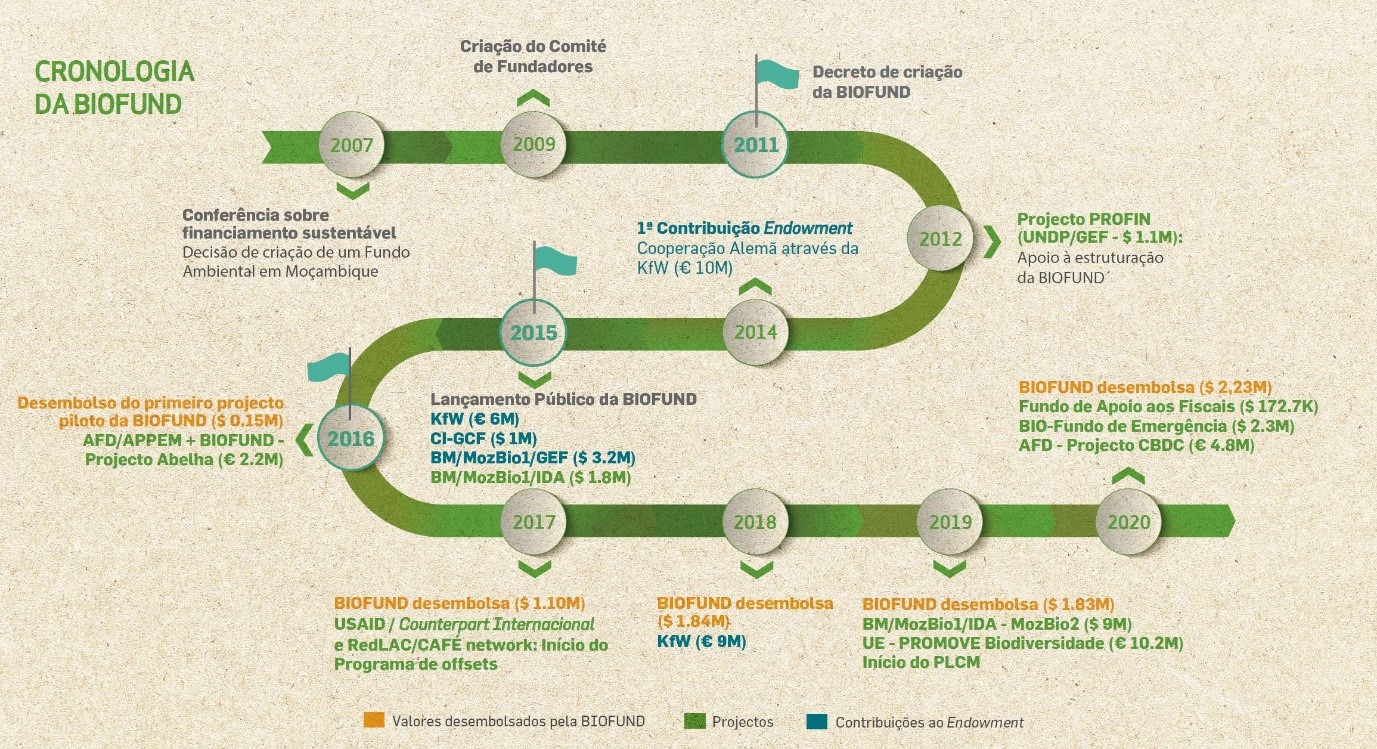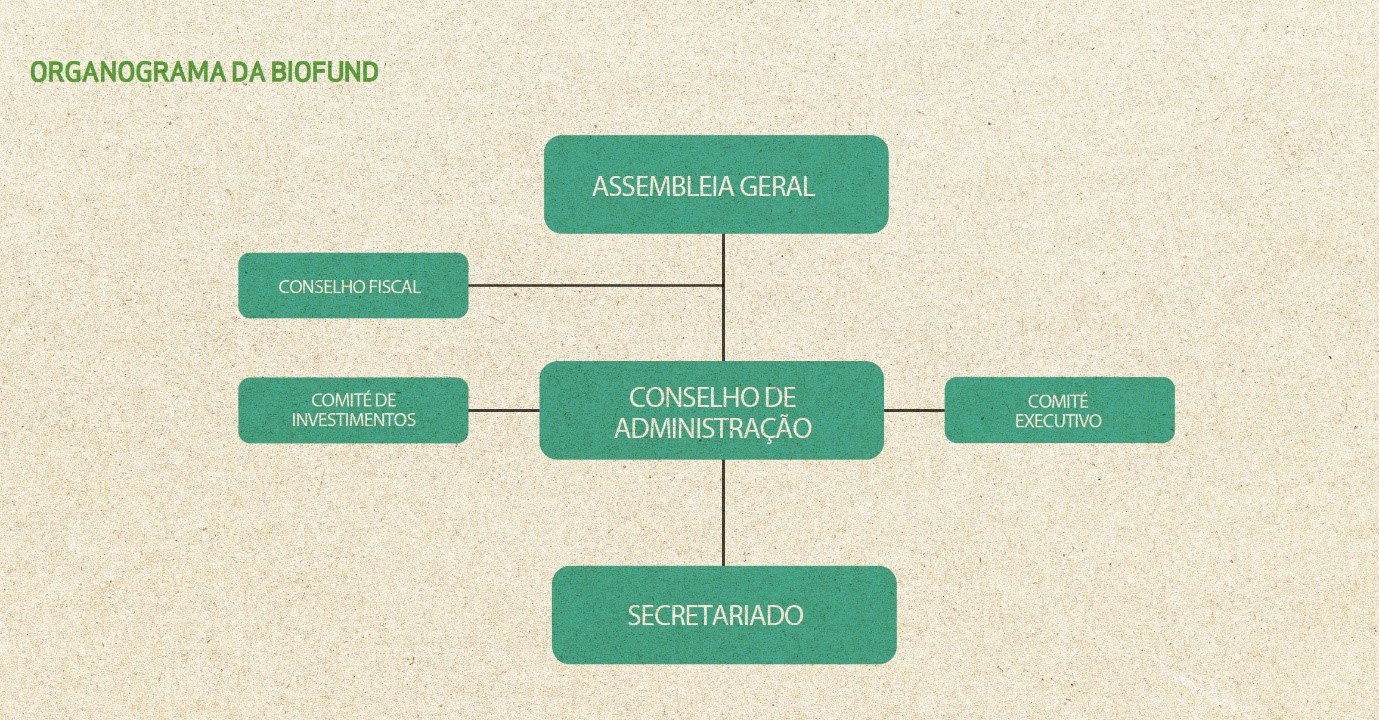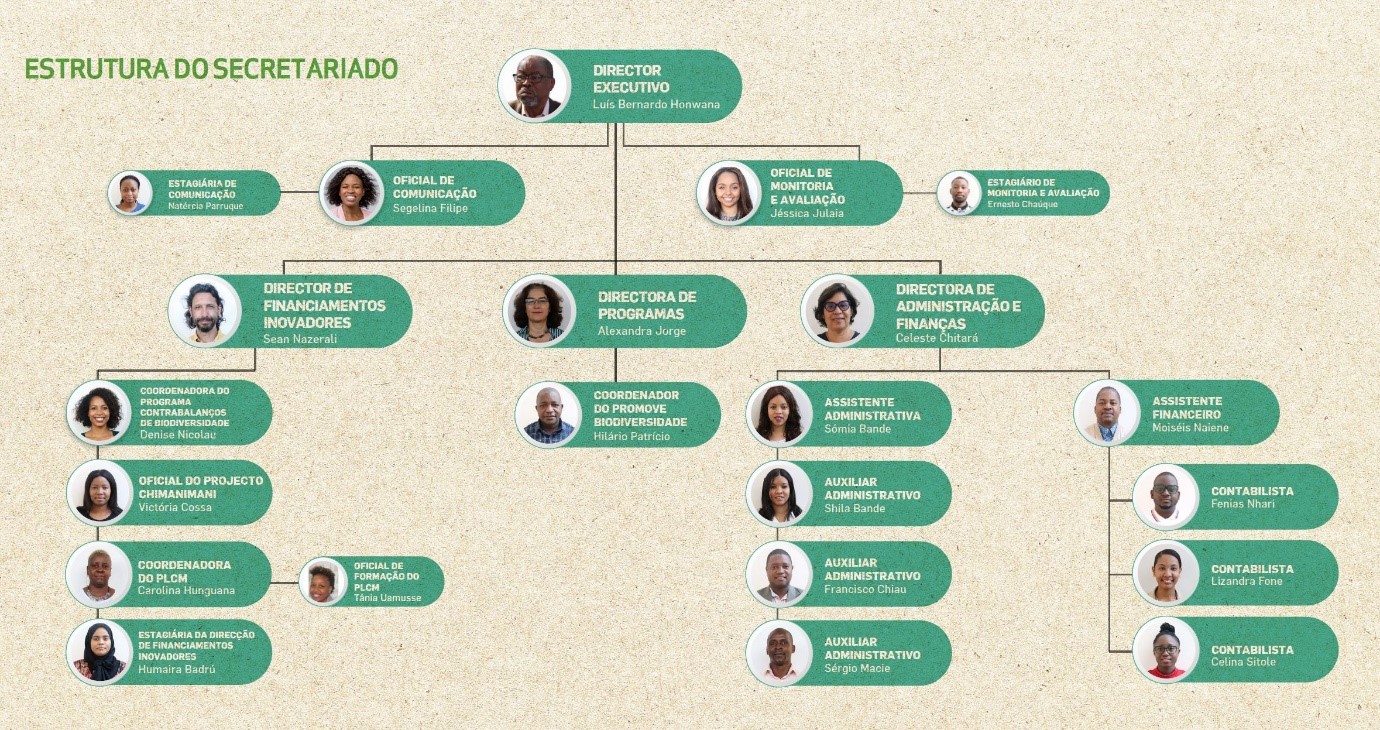© Xavier Desmier
What is BIOFUND – Draft
What is BIOFUND?
Updated at 19/07/2022
BIOFUND – The Foundation for the Conservation of Biodiversity is an Environmental Fund, a non-profit Mozambican private institution, and with a public utility statute, which mobilizes, applies and manages financial resources for the exclusive benefit of the biodiversity conservation in Mozambique.
It was set up in accordance with the best international practices for Conservation Funds, enshrined in the parameters of the CFA (Conservation Finance Alliance).
In addition to its specific role as a Conservation Trust Fund, the Foundation brings the contribution of the private sector, civil society and Academia to the conservation effort in Mozambique. Most of the public or private organizations related to biodiversity conservation in Mozambique are members of BIOFUND.
The History of BIOFUND
The first discussions on the importance and need to create an Environmental Fund in Mozambique took place in 2007, with the support of Mozambique conservation group (government, academia, private sector, civil society and NGOs), and from different donors in an international conference in Maputo about sustainable ways to support biodiversity conservation, where one of the main recommendations was the creation of a Trust Fund, a goal that was later included in the 2009 Conservation Policy. This policy also identified as a goal the creation of a parastatal organization for the management of Conservation Areas. These two goals of the policy were achieved in 2011, with the creation of Administração Nacional das Áreas de Conservação (ANAC) and the Foundation for the Conservation of Biodiversity (BIOFUND).
The creation of BIOFUND can be summarized in 5 stages:
The first stage was the emergence and acceptance of the concept (2007-2009), followed by the foundation stage (2009-2011), when a founding committee was established, who led the drafting of the statutes and the determination of the legal status of the institution.
With the formal establishment of BIOFUND in December 2011, the start-up and fundraising stage began (2011-2015) characterized by the physical establishment of the foundation, hiring the initial staff, development of relationships with the donors and establishment of administrative, financial, and operational procedures. This stage ended in 2015 with the beginning of the autonomous administrative and financial management of BIOFUND, the receipt of the first funds from donors for the Endowment (with emphasis on the German Cooperation through KfW) and led to the public launch through the first Biodiversity exhibition fair, inaugurated by his Excellency Filipe Jacinto Nyusi, President of the Republic of Mozambique, at the facilities of Eduardo Mondlane University in Maputo.
The pilot financing stage (2016 – 2017) then began disbursing the first BIOFUND Endowment incomes, together with AFD funds and was characterized by the preparation and implementation of pilot procedures (in Limpopo National Park), using BIOFUND’s first Manual of Procedures (approved by most conservation donors in Mozambique), followed by the design and launch of the first competitive calls to select the first beneficiaries, and the first direct disbursements to the beneficiary Conservation Areas.
BIOFUND has been in a phase of rapid growth and innovation since 2018, exponentially increasing the amounts raised for both its Endowment and the amount of funds from other donors that are channeled through BIOFUND, increasing the number and diversity of its beneficiaries. At this stage, BIOFUND has also undertaken an increasingly strong role in the exploration and development of innovative biodiversity financing mechanisms.
The chronology of BIOFUND shows detailed information for each year:

BIOFUND organization chart

For further information on BIOFUND social bodies Click here
BIOFUND Secretariat and staff structure (2020)

“…the poorest population groups in the country knew for centuries how to care for this heritage which are so proud of today. There is no good conservation policy which does not prioritise the human development of the protected areas. Once motivated and mobilised, the people living here will be the best rangers and defenders of our biodiversity.”
Filipe Nyusi

